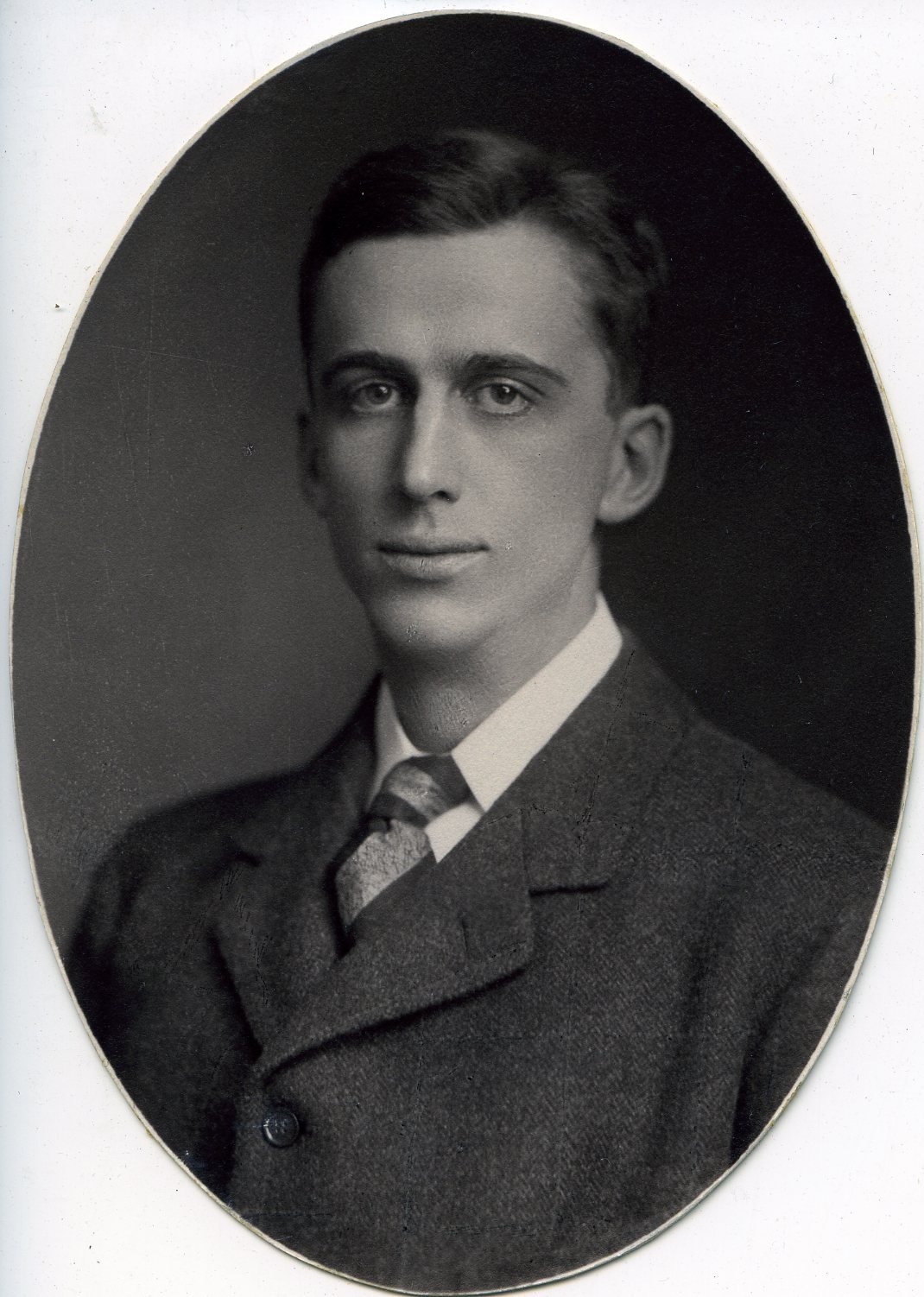President of Manufacturing Compnay
Centurion, 1904–1960
Born 18 March 1872 in New York (Manhattan), New York
Died 8 April 1960 in New York (Manhattan), New York
Buried Woodlawn Cemetery , Bronx, New York
, Bronx, New York
Proposed by Anson Phelps Stokes and William J. Schieffelin
Elected 6 February 1904 at age thirty-one
Archivist’s Note: Son of Anson Phelps Stokes; brother of Anson Phelps Stokes, Isaac Newton Phelps Stokes, and Harold Phelps Stokes; uncle of Anson Phelps Stokes Jr. and Isaac Newton Phelps Stokes
Century Memorial
It is a rare honor that our Association gives to Centurions who have been members for fifty years. Graham Stokes was thus honored in 1954. When, in 1904, he was elected, Stokes was only thirty-two—almost a record in youth [sic: he was thirty-one but among even the youngest 15 percent of historic members elected up to that date, so not unusually young]. At eighty-eight, he had outlived his close friends in the Club.
Stokes was known as “the millionaire Socialist.” In his young days, he turned from the study of medicine to welfare work. For many years he lived in the heart of the East Side, first at the University Settlement and later in a flat on Norfolk Street. In 1905 much publicity was given to his marriage to Rose Harriet Pastor, a former cigar-maker who had become an ardent champion, in her writing and other promotion work, of socialism and so-called “left-wing” causes. She was, indeed, so wholly dedicated to this philosophy that, during the First World War, she was arrested for obstructing the draft.
Graham Stokes (as he was known to his friends) once made this statement about his views—words which must have sent cold chills down the spines of his fellow millionaires:
“Till complete industrial freedom is achieved, we shall continue to have the revolting spectacle on every hand of a wealthy class purchasing ease and comfort with the proceeds of privileged extortion, while the majority of the producers of wealth struggle on in poverty and suffer and die for lack of the needful things that they themselves have produced in abundance.”
Tall, erect, and handsome, Stokes came to be a familiar figure in the Norfolk Street neighborhood, greeted by scores in much the same affectionate and admiring way that Al Smith knew so well. For many years he was chairman of the board of Hartley House, a celebrated settlement house founded in early reform days. He was greatly interested, too, in prison reform, in boys’ clubs and in various charitable and philanthropic enterprises, including the Association for Improving the Condition of the Poor, the New York Juvenile Asylum, and the People’s Institute.
With the entrance of the United States into the First World War, Stokes experienced a conflict between his patriotism and the prevailing pacifist views of Socialists. He joined the Coast Artillery, in which he later became major. At the low point of Allied fortunes in 1918, at a time when there were occasional mutinies in the French military service, he went to France to reassure the malcontents there.
It was at this point that he moved away from his earlier convictions. This brought a breach with his wife, who apparently showed Communist leanings, and they were divorced in 1925. His remarriage to Lettice Lee Sands was consistently happy. Through the remaining thirty-five years of his life he swung to the right in politics and was active in business affairs.
Stokes was born in New York and was educated at Yale, from which he graduated in 1892. He received his degree as Doctor of Medicine from Columbia’s College of Physicians and Surgeons in 1896. He joined Squadron A of the New York National Guard and served in the Spanish-American War. In 1904 he was a candidate for presidential elector on the Populist ticket and for President of the City Board of Aldermen on a municipal ownership platform in 1905. He was a founder of the Intercollegiate Socialist Society and ran for various offices in New York and Connecticut on the Socialist ticket. These early socialistic ventures were recently described by a friend as reflecting chiefly “an aspiration for social justice rather than a political pattern.” He changed as American society changed; as the measure of social justice increased, and as the crying needs of reform were answered.
In the changing temper of the times in which he lived, J. G. Phelps Stokes is a kind of symbol. In the Century, he was a striking example of the wide-ranging variety of our membership.
Roger Burlingame
1961 Century Association Yearbook

